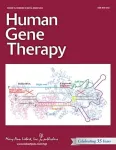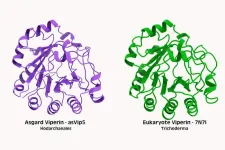(Press-News.org) LAWRENCE — The National Science Foundation (NSF) has awarded the University of Kansas $26 million to establish a new Gen-4 Engineering Research Center (ERC) —Environmentally Applied Refrigerant Technology Hub (EARTH) — that will create a sustainable and circular refrigerant economy.
NSF’s Engineering Research Centers bring universities and businesses together to strengthen the competitive position of American industry in the global marketplace.
“NSF's Engineering Research Centers ask big questions in order to catalyze solutions with far-reaching impacts,” NSF Director Sethuraman Panchanathan said. “NSF Engineering Research Centers are powerhouses of discovery and innovation, bringing America's great engineering minds to bear on our toughest challenges. By collaborating with industry and training the workforce of the future, ERCs create an innovation ecosystem that can accelerate engineering innovations, producing tremendous economic and societal benefits for the nation.”
KU’s ERC EARTH was selected from among hundreds of proposed centers.
“Working closely with industry partners, EARTH will have the resources and expertise to solve the technical, environmental and economic challenges required to create a sustainable refrigerant lifecycle that will benefit Kansans, the nation and the world. In doing this work, the center is a prime example of how the University of Kansas is driving economic development in Kansas," said Douglas A. Girod, University of Kansas chancellor.
KU is well positioned to lead this effort.
“The University of Kansas has a talented workforce and robust research capabilities,” said Kansas Sen. Jerry Moran. “This new research center will allow Kansans to lead the way in developing the next generation of refrigerant technology, increasing U.S. competitiveness in an important technology and industry. Through my leadership role on the Senate Appropriations subcommittee which funds federal scientific priorities, I am pleased to help fund the U.S. National Science Foundation, which is critical to advancing U.S. research and development.”
KU is the lead institution and is joined by partners at the University of Notre Dame, University of Maryland, University of Hawai'i, University of South Dakota and Lehigh University.
Mark Shiflett serves as director for ERC EARTH. Shiflett is a KU Foundation Distinguished Professor in the Department of Chemical & Petroleum Engineering and director of the Wonderful Institute for Sustainable Engineering.
“EARTH’s operational design will cultivate inclusive, interdisciplinary research collaborations and foster workforce development. The EARTH team will partner with community colleges and technical schools to ensure availability of the needed workforce at all levels,” Shiflett said.
At the heart of ERC EARTH’s work is reimagining the process for heating, ventilation, air-conditioning and refrigeration (HVACR) systems across the globe. EARTH will develop sustainable, accessible and equitable refrigerant technologies and practices through research, education and innovation that will improve quality of life and combat climate change.
HVACR systems are widespread throughout society, enabling transportation and preservation of fresh foods, storage of medicines and cooling of buildings. Most current refrigerants are hydrofluorocarbons (HFCs), which have high global-warming potential. As a result of leaks from existing systems and the energy required to operate them, HFCs account for nearly 8% of global greenhouse-gas emissions.
In response, the U.S. and 170 other countries are phasing down HFCs in accordance with domestic and international agreements signed in recent years, which creates a tremendous challenge to responsibly and sustainably replace billions of kilograms of refrigerants.
ERC EARTH will take a multifaceted approach to address this challenge.
“Multidisciplinary research teams will focus on three key areas: promoting the recycling and repurposing of refrigerants, developing transformative refrigerants and creating next-generation cooling and heating technologies with higher energy efficiency,” Shiflett said.
At its core, ERC EARTH will address a critical challenge facing society.
“There is a tremendous need to develop cooling/heating technologies that use less energy and new refrigerants that are safe for the environment. EARTH will be a critical national resource to address these challenges. The University of Kansas School of Engineering is proud to be leading this collaboration, which leverages multiple academic and industrial partners,” said Mary Rezac, dean of the KU School of Engineering.
This is one of the largest federally funded grants in KU history, with the potential to become the largest if the renewal option is successful. The project is renewable after five years for another $26 million dollars, for a total of 10 years and $52 million.
END
University of Kansas awarded $26 million for new Engineering Research Center from National Science Foundation
2024-08-21
ELSE PRESS RELEASES FROM THIS DATE:
Sandia Science & Technology Park injecting billions into state economy
2024-08-21
ALBUQUERQUE, N.M. — The Sandia Science & Technology Park is being credited with playing a critical role in New Mexico’s economy over the last 25 years, creating high-paying jobs and bringing state-of-the-art technologies to the marketplace.
A study by the Mid-Region Council of Governments shows that over that time, businesses located within the technology park paid out $7.7 billion in wages in the five-county region of Bernalillo, Sandoval, Valencia, Torrance and southern Santa Fe counties. It also shows the park generated ...
Marshall University innovators selected for prestigious NIH-funded entrepreneurship program
2024-08-21
HUNTINGTON, W.Va. – Two Marshall University innovators, Brad Profitt, DC, DPT, DScPT, and M’Hamed Turki, M.D., have been selected to participate in the National Institutes of Health (NIH) funded IDeA Regional Entrepreneurship Development (I-RED) Program, facilitated by the XLerator Network.
The NIH’s competitive I-RED program supports the creation of educational products to promote entrepreneurship in academic institutions. XLerator Health, a health care accelerator based in Louisville, Kentucky, assists startup founders like Profitt and Turki in commercializing their businesses and attracting funding.
Profitt is a co-founder ...
Lipid nanoparticle mRNA therapy improves survival in mouse models of maple syrup urine disease
2024-08-21
New Rochelle, NY, August 21, 2024—Researchers from the University of Pennsylvania, Perelman School of Medicine, Gene Therapy Program, and Moderna, have shown that repeated administration of lipid nanoparticle-encapsulated mRNA therapy significantly extended survival and reduced serum leucine levels in a mouse model of maple syrup urine disease (MSUD). Click here to read the article now.
The researchers, led by James Wilson, M.D., Ph.D., from the University of Pennsylvania, Perelman School of Medicine, evaluated a lipid nanoparticle-based treatment approach to address all possible genetic mutations that can cause MSUD.
“Repeated intravenous ...
USAMMDA commercial partner receives FDA emergency use authorization for plasma powder
2024-08-21
A U.S. Army Medical Materiel Development Activity commercial partner received Emergency Use Authorization from the U.S. Food and Drug Administration for the Department of Defense to use octaplasLG Powder—a potentially lifesaving treatment option for blood replacement therapies in certain operational circumstances. Notice of the EUA for this product was received by the company, Octapharma USA, on Aug. 8, 2024.
USAMMDA’s Warfighter Protection and Acute Care Project Management Office, which has a Cooperative Research and Development Agreement with Octapharma USA, manages research and development efforts for several ...
Pennington Biomedical study to explore effects of soy on blood sugar levels
2024-08-21
Pennington Biomedical Research Center’s Dr. Candida Rebello wants to know more about the intersection of blood sugar levels and a diet rich in soy. This intersection is the primary focus of her new study, “Lifestyle Intervention for Improving Metabolic and Motivational Outcomes,” or MOTIVATE, which explores how specific diets can impact blood sugar, and potentially improve mood and energy levels.
When soy seeds are cut, they produce the anti-microbial compound known as glyceollin, which has been shown to improve insulin sensitivity and cognition. The cut soy seeds will be milled into flour and will be included in the diets of some of the participants. The MOTIVATE ...
Giving an antibiotic to all children under 5 in Africa saves lives
2024-08-21
When UC San Francisco research showed that routinely treating children in Sub-Saharan Africa with a common antibiotic could reduce deaths in children under five, the World Health Organization (WHO) moved quickly to recommend the treatment – but only for infants between 1 and 11 months old.
Now, UCSF researchers have shown that treating babies is not enough. The antibiotic must be given to all children up to 5 years old to realize its full benefit, which is considerable: It lowers child mortality ...
Pivotal study supports belzutifan approval for patients with advanced kidney cancer
2024-08-21
RESEARCH SUMMARY
Study Title: Belzutifan Versus Everolimus for Advanced Renal-Cell Carcinoma
Publication: New England Journal of Medicine, August 22, 2024
Dana-Farber Cancer Institute authors: Toni K. Choueiri, MD
Summary: The LITESPARK-005 phase 3 clinical enrolled 746 patients with metastatic clear cell renal cell carcinoma (ccRCC) who had progressed after treatment with both an immune checkpoint inhibitor (ICI) and an anti-angiogenic therapy. Patients were randomized to receive treatment with either belzutifan, a HIF-2α inhibitor, or everolimus. Overabundant HIF-2α is associated with increased cancer-driving activity. At the second interim analysis of this study, ...
Next time you beat a virus, thank your microbial ancestors
2024-08-21
When you get infected with a virus, some of the first weapons your body deploys to fight it were passed down to us from our microbial ancestors billions of years ago. According to new research from The University of Texas at Austin, two key elements of our innate immune system came from a group of microbes called Asgard archaea.
Specifically, viperins and argonautes, two proteins that are known to play important roles in the immune systems of all complex life — from insects to plants to humans — came from the Asgard archaea. Versions of these defense proteins are also present in bacteria, but the versions in complex life forms are ...
Two UCSB professors selected by the Gordon and Betty Moore Foundation to be Experimental Physics Investigators
2024-08-21
(Santa Barbara, Calif.) — UC Santa Barbara professors Andrew Jayich and Jon Schuller have been selected by the Gordon and Betty Moore Foundation to be part of the 2024 cohort of Experimental Physics Investigators. They join 17 other mid-career researchers from around the country, each receiving a five-year, $1.25 million grant to pursue research goals.
“This initiative is designed to support novel and potentially high-payoff projects that will advance the field of physics but might be hard to fund through traditional funding sources,” said Theodore ...
Study of pythons could lead to new therapies for heart disease, other illnesses
2024-08-21
In the first 24 hours after a python devours its massive prey, its heart grows 25%, its cardiac tissue softens dramatically, and the organ squeezes harder and harder to more than double its pulse. Meanwhile, a vast collection of specialized genes kicks into action to help boost the snake’s metabolism fortyfold. Two weeks later, after its feast has been digested, all systems return to normal—its heart remaining just slightly larger, and even stronger, than before.
This extraordinary process, described by CU Boulder researchers this week in the journal PNAS, could ultimately inspire novel treatments for a common human heart condition called cardiac fibrosis, in which ...






